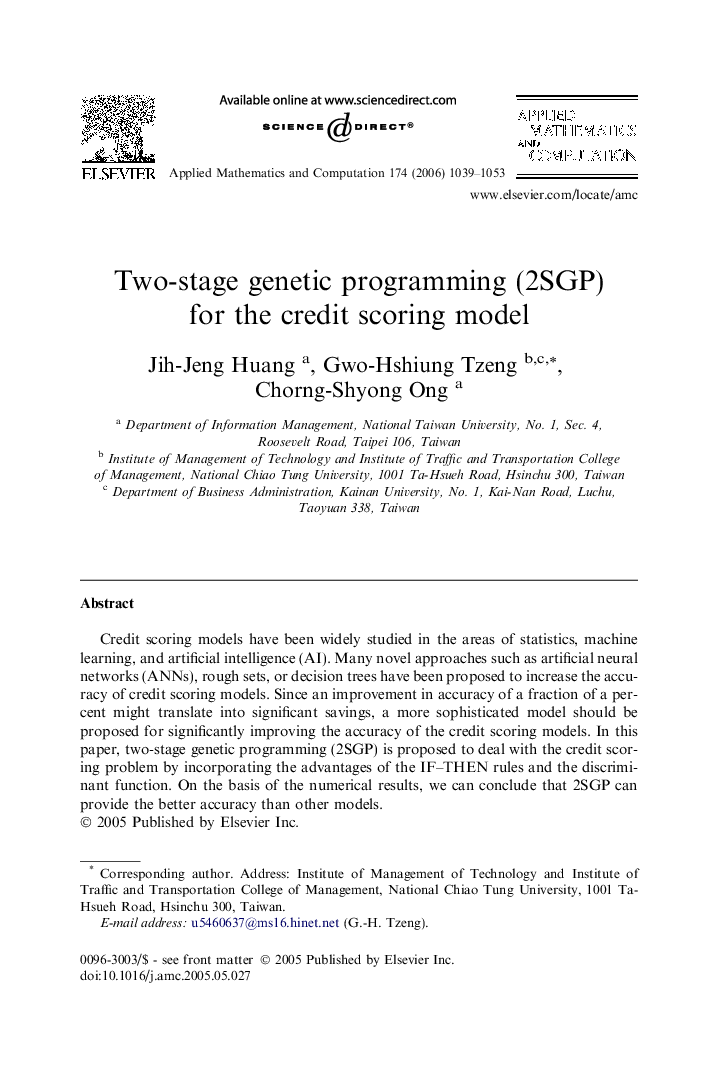| Article ID | Journal | Published Year | Pages | File Type |
|---|---|---|---|---|
| 4637340 | Applied Mathematics and Computation | 2006 | 15 Pages |
Credit scoring models have been widely studied in the areas of statistics, machine learning, and artificial intelligence (AI). Many novel approaches such as artificial neural networks (ANNs), rough sets, or decision trees have been proposed to increase the accuracy of credit scoring models. Since an improvement in accuracy of a fraction of a percent might translate into significant savings, a more sophisticated model should be proposed for significantly improving the accuracy of the credit scoring models. In this paper, two-stage genetic programming (2SGP) is proposed to deal with the credit scoring problem by incorporating the advantages of the IF–THEN rules and the discriminant function. On the basis of the numerical results, we can conclude that 2SGP can provide the better accuracy than other models.
